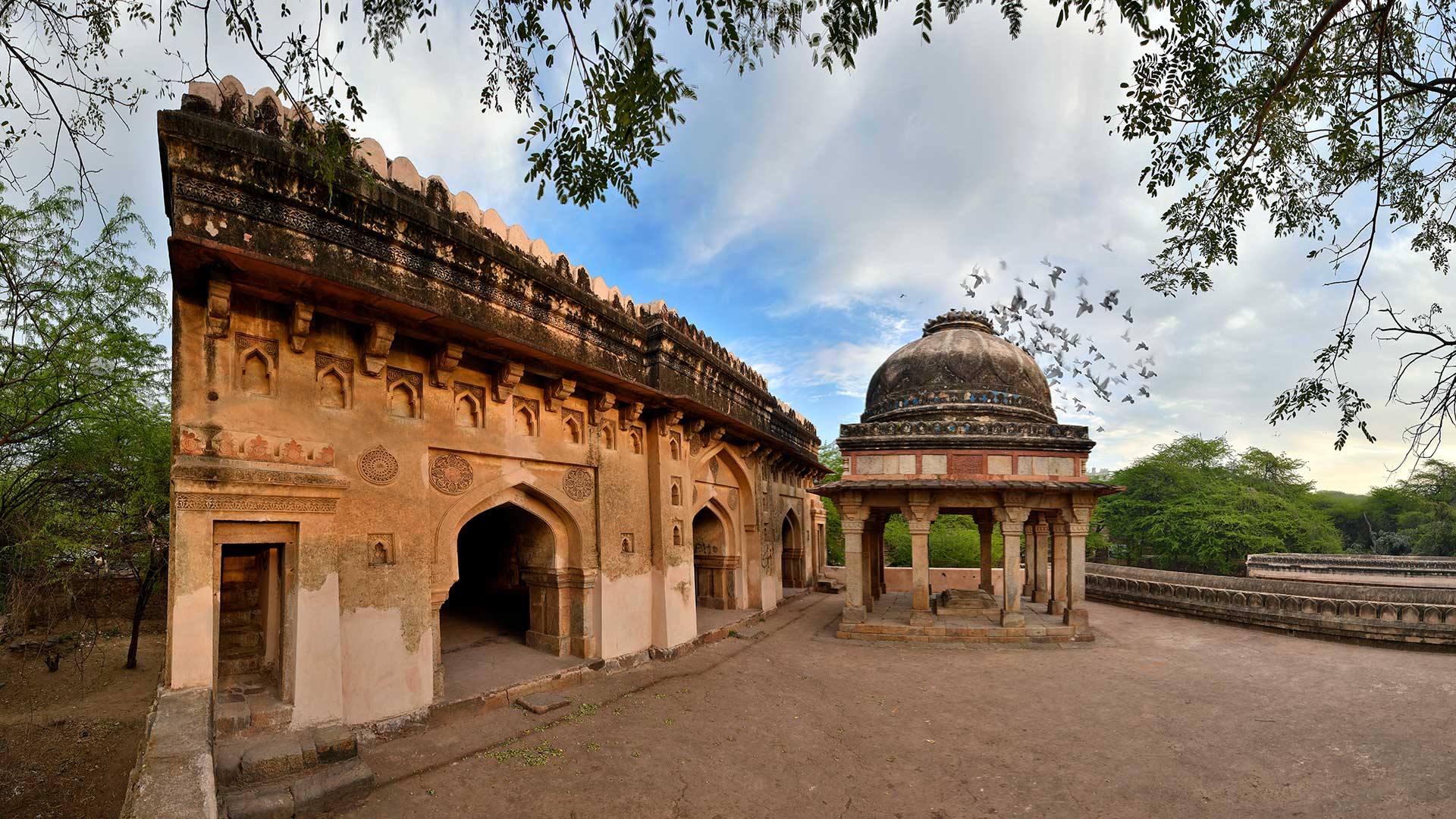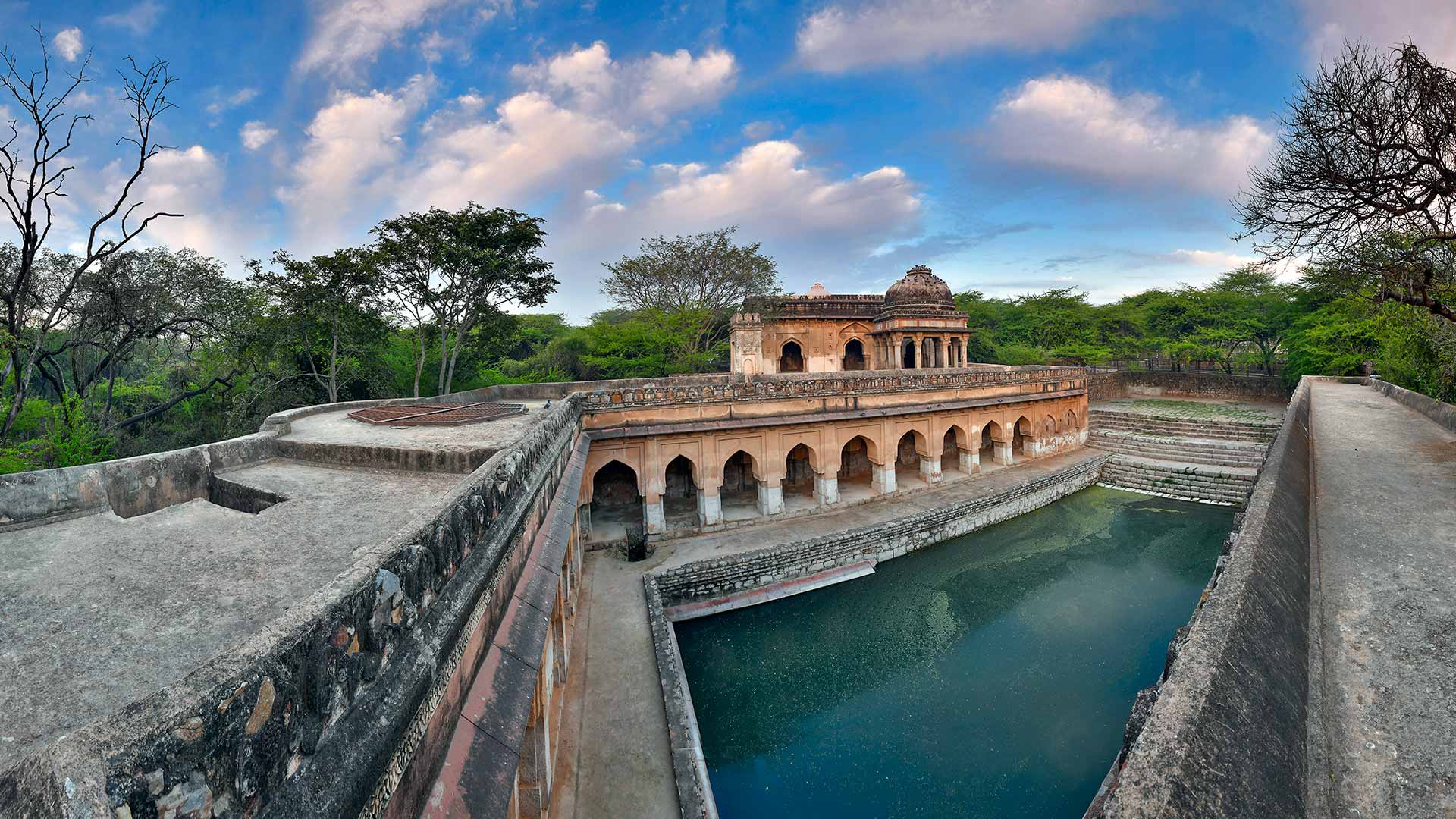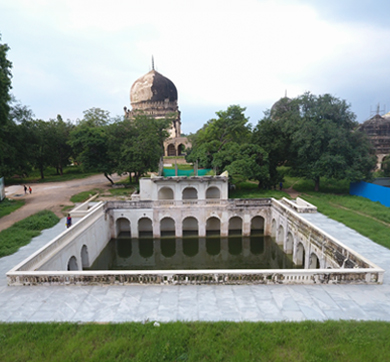September 2024 | 1491 words | 6-minute read
In October last year, at the Hadrian Gala in New York, World Monuments Fund (WMF) honoured Tata Sons with the Hadrian Award for its support of heritage projects across India.
On the group being recognised for its work, N Chandrasekaran, Chairman, Tata Sons, who accepted the award at the event, said, “The Tata group has been committed to the fine arts, history and heritage, supporting many historical monuments in their conservation. To me, the water bodies project, which we work on with the WMF is very important. It’s a unique water management system that was built in the olden days. Preserving and rejuvenating those water bodies will solve the scarcity problem of one of the most critical, vital resources in the world… It’s very difficult for us to do this alone. We do these projects by bringing in partners; sometimes it’s a public-private partnership, sometimes it’s a partnership with an institution like the WMF. There are so many opportunities to make an impact if you do this right, and we’ve made a beginning in all these areas, but our ambition is to do this at scale so that we are able to address the needs and make an impact.”
For its part, WMF has had a significant long-standing presence with a well-established record of conservation and preservation in India and abroad. In India, the WMFI has worked with multi-disciplinary specialists across the country, balancing partnerships with governments and private players.

The Tata group has had a long-standing commitment to provide access to potable water in India. TCS Foundation (TCSF), a subsidiary of Tata Consultancy Services frequently deploys its own resources or collaborates and associates with institutions or organisations having required capabilities and experience for the projects concerned.
TCSF approached WMFI to create a comprehensive repository of traditional water structures collated through secondary research. This was followed by creation of a brief framework to inform possible areas of intervention for conservation.
The importance of baolis
A baoli or bawdi is a unique form of underground well architecture in which a long-stepped corridor leads down five to six storeys until it reaches the aquifer. The well, at the far end of the structure, thus remains filled with clean and naturally filtered water throughout the year. These structures are designed to offer more than water. While the tiered structure provides shelter from hot and dry weather, the structure, usually made of brick, sandstone, and lime mortar, keeps the surroundings cool. These baolis were the primary source of water for the neighbourhood.
Currently, there are about 10,000 baolis across the country. In recent decades, with intense development pressures and the advent of piped water supply into cities, contemporary Indian society has disclaimed its water-based heritage, and in the process, has sacrificed access to this essential resource. These structures have been marginalised and fallen into decay. There is a need to safeguard ground water and watersheds to ensure water is accessible in the future. The projects for restoration of historic water systems provide an opportunity to address intersecting contemporary issues, including impacts of urbanisation and climate change on access to clean water.

Making an impact
TCSF has committed to a long-term partnership with WMFI, with each project having different outcomes. Once baolis are conserved and restored, these water systems can serve as great ecological assets in terms of improving community access to clean water, helping reinforce water security and sustaining the region by enhancing community involvement. The historic nature of baolis can also help them become tourist attractions.
WMFI sources as many of its skills as close to its project sites as possible. The value of this is that local people are far more invested in the work in their hometowns. Given India’s diversity it is important to connect directly with local stakeholders and communities as direct beneficiaries. Partnering with local communities, donors, and governments, WMFI draws on heritage to address some of today’s most pressing challenges: climate change, underrepresentation, imbalanced tourism, and post-crisis recovery.
The baolis are protected by either Archaeological Society of India (ASI), local municipalities, Wakf Board or departments under the State Government who take responsibility for the services of the restored site. A mechanism will be established with the community which will help monitor the quality of water in the restored site and raise awareness about maintaining the baoli.

Current projects
TCSF is currently executing projects with WMFI for Rajao ki Baoli (Rs 3.45 crore) in Delhi, Taj Bawdi (Rs 11.30 crore) in Karnataka, Kund Vav (Rs 3.75 crore) in Gujarat and Jaipur Baolis (Rs 6.20 crore) in Rajasthan.
Rajon Ki Baoli: The ASI, WMFI and TCSF have undertaken the conservation and rejuvenation of historic water bodies in Mehrauli, namely, Rajao ki Baoli, by initiating a detailed environmental study of the water shed area in Mehrauli to improve water resilience in the area. It has also prepared a Conservation Management Plan including a Detailed Project Report for conservation plan of the built fabric of Rajao ki Baoli and Lal Kot walls and implementation of the Conservation of Rajao ki Baoli. The project duration is from Apr 2023 to Apr 2025.
Taj Bawdi or Baoli: A large tank in Vijayapura, Karnataka, the baoli (stepped-well) was built by Ibrahim Adil Shah II, in honour of his wife, Queen Taj Sultana in the year 1620. Nominated to the World Monuments Watch List in 2019, it attracts visitors due to its size and grandeur. The expected outcomes for Taj Bawdi are: conservation of heritage asset with tourism opportunities; augmenting water supply for the local community; improved water table in the precinct and; model project for revival of total water storage. The project duration is from August 2023 to July 2025.
Kund Vav: Built in the 11th century by King Siddharaj Jaysinh of the Solanki dynasty, the Kund Vav is located in Kapadvanj, Gujarat. It is a stepped pond with a well alongside. All the elements of this monument, such as the stairs, pavilions, well and toran (gateways of a Hindu temple or Buddhist shrine) are aligned in a manner that suggest it might have been part of a temple complex, which doesn’t exist today. The stepped pond has a rhythmic progression of lateral steps descending towards the water in multiple levels.
The water in the pond is contaminated due to the presence of algae, which is also causing structural damage. With scarce community engagement, the vav (stepwell) is slowly turning into a dump yard. A feasibility study was conducted two years ago, which proposed restoration, conservation and development of Kund Vav as a tourist destination. The project is being undertaken in collaboration with the Center for Heritage Conservation (CHC) CEPT Advisory Foundation (CAF), Ahmedabad, WMFI and TCSF.
This gated site is protected by the Department of Museums and Archaeology, Gujarat and as a site custodian, they will help monitor the quality of water in the restored site and raise awareness about maintaining it. The project duration is from April 2024 to Sep 2026.
Jaipur Baolis: The project had been approved for Rs. 6.20 crore over a period of three years to conserve and rejuvenate eight baolis, namely Sura ki Bawri, Khalsaki Bawri, Teliyon ki Bawri, Kund ki Bawri, Patel ki Bawri, Goraknath ki Bawri, Yagyashala ki Bawri, Gokulnath ki Bawri and 1 kund (Kadam Kund) in Jaipur.
The Jaipur Heritage Management Plan indicates that there are 68 baolis listed within the walled city of Jaipur. These structures have architectural, historical, religious and/or natural significance. WMFI had a meeting with the Nagar Nigam Jaipur (NNJ) - Heritage in August 2023 where NNJ has suggested conservation and rejuvenation of Gaitore ki Bawri, Parshuram Bawdi, Kala Hanuman ki Bawdi and Bengali Baba ki Bawdi in Jaipur instead of the earlier proposed baolis.
Ghats of River Krishna and Temples of Wai: Another water management system project recently approved by the TCSF Board, to be taken up in due course, are the ghats of River Krishna and temples of Wai. A small town in the Satara district of Maharashtra, Wai is located on the banks of River Krishna, is surrounded by seven ghats.
The ghats — Umamaheshwar, Satyanathpuri, Kashi Vishweshwar, Ravidhundi, Chakreshwar, Krishna Rameshwar and Bhimkund Ali — are intensively used for religious activities and other myriad activities like washing clothes and buffaloes, and bathing. The built fabric of the ghats- steps, landings, historic temples, and small shrines have suffered as a result of improper repairs and maintenance. Small shrines are in dilapidated state and the temples need structural assessment. The ghats and temples are in urgent need of conservation and restoration. TCSF will pursue the same. The project size is Rs 12 crore.
It is clear that TCSF’s partnership with WMFI highlights its continuing commitment to the national campaign for water conservation through the restoration of traditional water systems, and that it is well on track to fulfilling this commitment.













